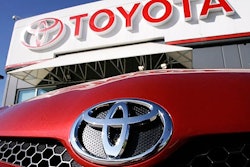Would you consider buying an electric car if it were just as expensive as an equivalent model powered by a traditional internal combustion engine? I’m betting many people would. And while electric vehicles are still pricier than gasoline-powered cars, the advances in battery technology have come a long way in bringing down the prices of electric cars over the past years.
According to estimates from Bloomberg New Energy Finance published by McKinsey, the average price of battery packs for cars has dropped from $1,000 per kWh in 2010 to around $230 per kWh in the past year. How much of a difference does that make to the price of a car, you ask? A big one. Consider the Tesla Model S for example: The most popular electric car in the U.S. comes with a battery capacity between 75 and 100 kWh. If you decide on the model with 100 kWh, that car’s battery now costs around $23,000 as opposed to $100,000 a couple of years ago.
While price is not the only thing keeping people from making the switch to electric cars (range is another big one), it would certainly help if they weren’t so damn expensive. Should battery prices continue to drop over the next few years, it would go a long way to helping electric mobility escape its niche.
This chart shows how battery prices for electric cars have declined over the past few years.























